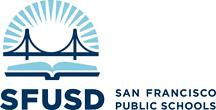San Francisco School District Retracts Grading for Equity Initiative Amidst Public Outcry
The San Francisco Unified School District has officially reversed its decision to implement the “Grading for Equity” framework following widespread opposition from parents, teachers, and community advocates. Originally designed to tackle systemic disparities in student grading, the initiative faced criticism for potentially lowering academic expectations and compromising meritocratic evaluation. This reversal reflects the district’s response to intense community concerns about the implications of altering traditional grading systems.
The initial objectives of the policy included:
- Removing penalties for late submissions and attendance-related issues
- Emphasizing mastery of content over point deductions
- Creating a more just and consistent grading system across diverse student groups
After extensive feedback, district officials acknowledged the necessity of a more inclusive and transparent process, emphasizing collaboration with all stakeholders before pursuing any substantial grading reforms.
Community Reaction Underscores Demands for Transparency and Fairness
Parents, educators, and local leaders voiced strong objections to the district’s initial rollout of the “Grading for Equity” plan, highlighting a lack of clear communication and insufficient data to justify the changes. Many community members expressed apprehension about how the new grading policies would influence student evaluations, teacher assessments, and ultimately, college admissions.
Primary concerns included:
- Insufficient empirical evidence demonstrating the effectiveness of the proposed grading adjustments
- Worries about maintaining fairness while accommodating diverse learning needs without diluting academic rigor
- Limited involvement of parents and educators in the decision-making process
| Issue | Community Feedback |
|---|---|
| Transparency | Calls for ongoing communication and detailed updates |
| Fairness in Grading | Ensuring equitable opportunities without inflating grades |
| Stakeholder Participation | Greater inclusion of parents and teachers in policy development |
Calls for Collaborative Dialogue on Academic Evaluation
Responding to the strong community feedback, the San Francisco school district has paused the rollout of the “Grading for Equity” initiative. Critics argued that the policy, while well-intentioned to reduce grading disparities, lacked sufficient input from key stakeholders and risked obscuring true student achievement. Concerns were raised that the approach might inadvertently weaken academic standards and complicate college admissions evaluations.
Advocates for balanced assessment reforms stress the importance of inclusive conversations that:
- Engage educators, parents, and students in transparent discussions
- Preserve rigorous yet fair grading standards
- Accommodate diverse learning styles without sacrificing accountability
In light of these concerns, district leaders have proposed establishing a committee dedicated to revising grading policies. This group will aim to harmonize equity goals with community expectations, fostering trust and cooperation moving forward.
Expert Insights on Effective Grading Reform Strategies
Educational specialists emphasize the importance of adopting balanced and evidence-based approaches to address inequities in grading without compromising academic standards. While equity-focused reforms seek to create fairer learning environments, experts caution against measures that might reduce student accountability or obscure genuine achievement.
Key recommendations for successful equity initiatives include:
- Clear and transparent grading policies that provide students and parents with understandable criteria
- Ongoing professional development to equip teachers with tools for equitable and rigorous assessment
- Continuous monitoring and feedback systems to evaluate the impact of grading changes and make data-driven adjustments
| Core Component | Focus Area |
|---|---|
| Assessment Framework | Balancing fairness with academic rigor |
| Teacher Training | Providing ongoing support and resources |
| Community Engagement | Facilitating open dialogue and feedback |
Final Thoughts on Grading Reform in San Francisco
The San Francisco Unified School District’s withdrawal of the “Grading for Equity” proposal highlights the complexities educational leaders face when attempting to reform grading systems amid diverse community perspectives. As debates over equitable grading continue across the country, this case underscores the necessity of balancing innovation with transparency, stakeholder involvement, and academic integrity. The district has yet to unveil alternative strategies to promote equity in grading, indicating that this remains a dynamic and evolving challenge within public education.




